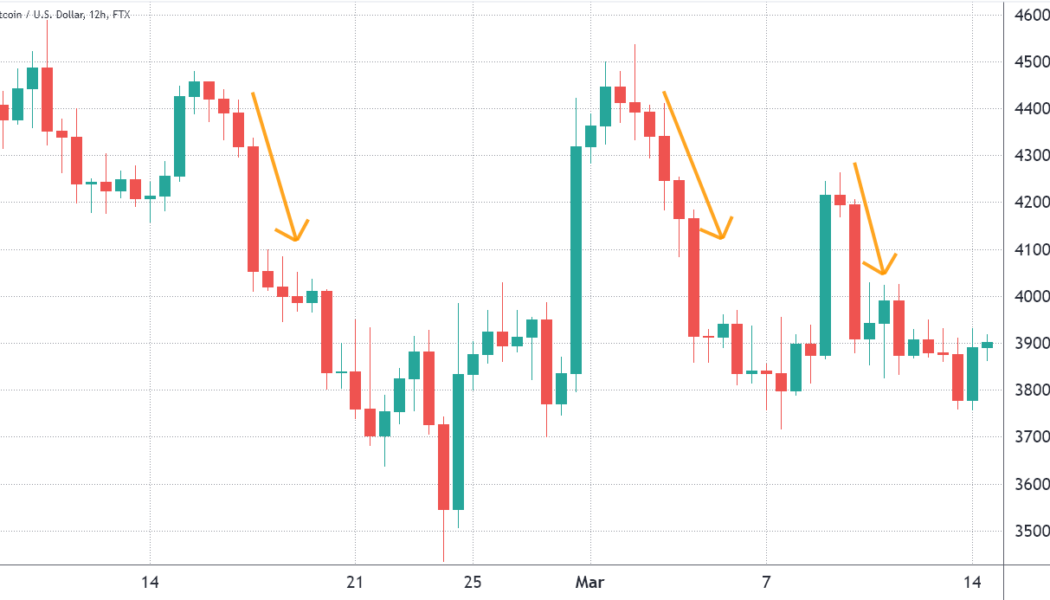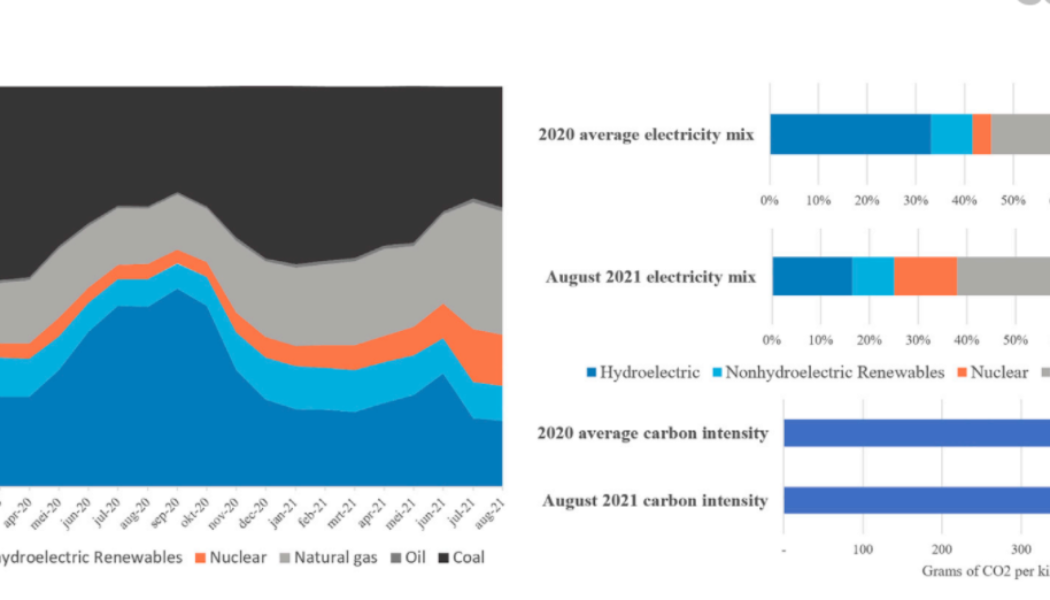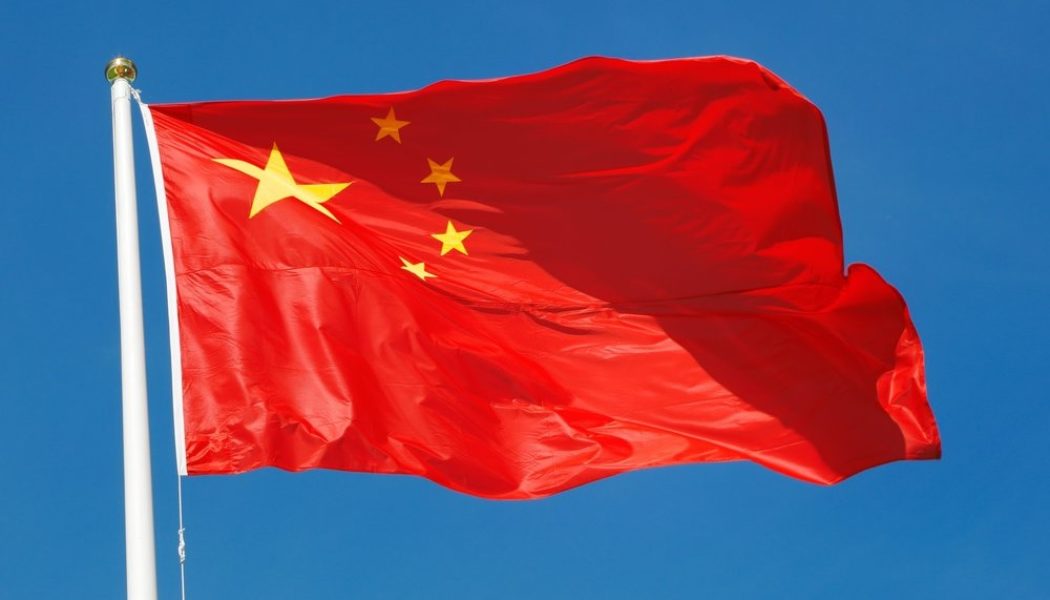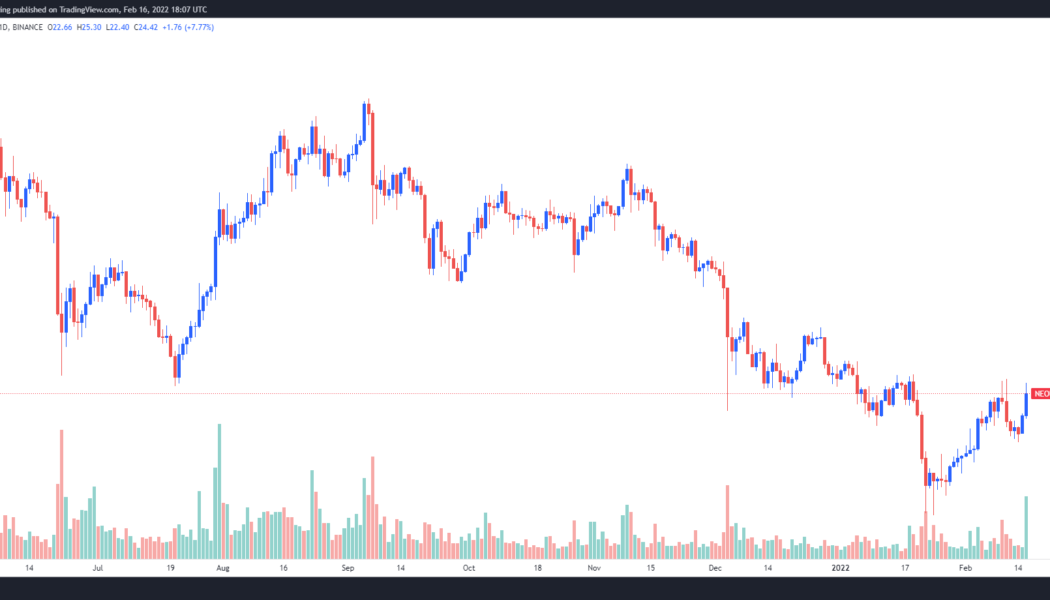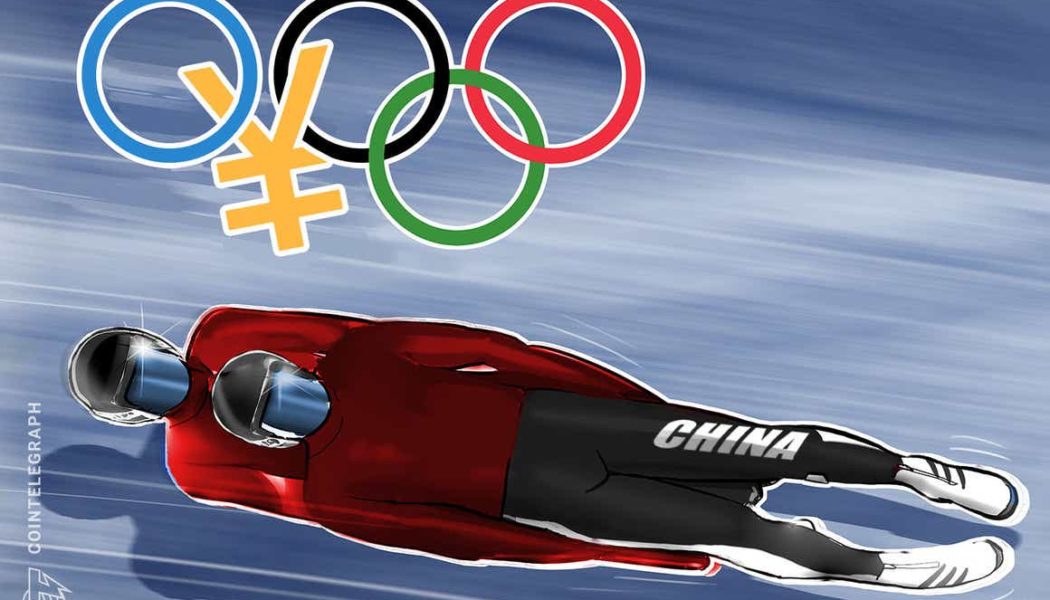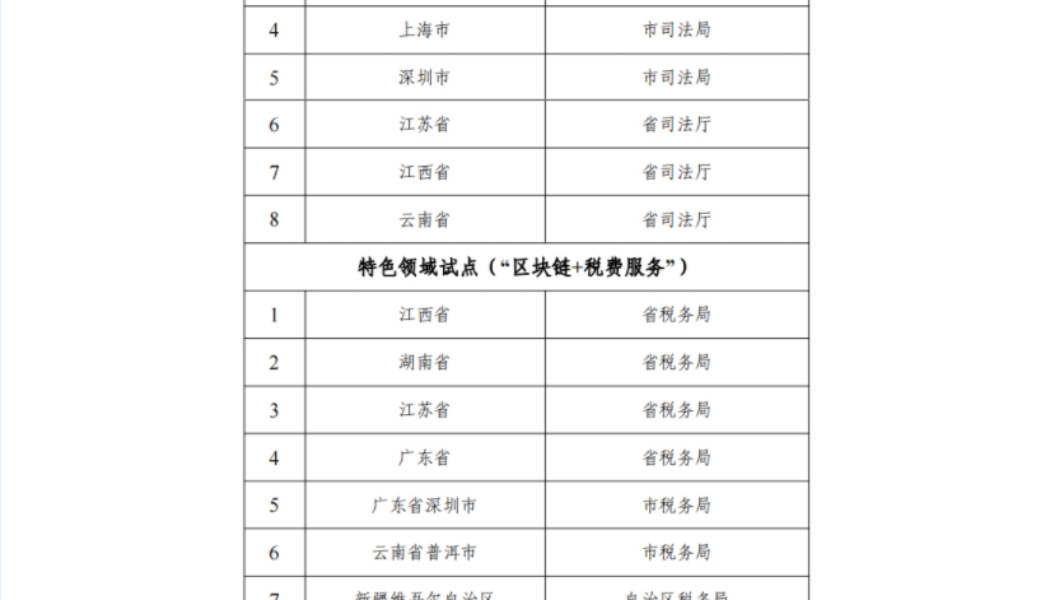China
Bitcoin’s got 3 strikes, but investors remain calm despite price drop
After Bitcoin (BTC) faced its third consecutive rejection, investors became more confident in adding altcoin positions. For the leading cryptocurrency, the path to $50,000 appears more challenging than previously expected. According to Euronews Next, on March 14, the European Union rejected a proposed rule that could have banned the energy-intensive proof-of-work (PoW) mining algorithm used by Bitcoin and other cryptocurrencies. Several EU parliamentarians have been pushing to ban PoW mining over energy concerns. BTC/USD price at FTX. Source: TradingView In terms of performance, the aggregate market capitalization of all cryptos was relatively flat over the past seven days, registering a modest 0.4% gain to $1.77 trillion. However, the apparent lack of performance in the overall market doe...
China’s share in Bitcoin transactions declined 80% post crackdown: PBoC
People’s Bank of China, the central bank of the country, claimed in a recent note that China’s share in the global Bitcoin (BTC) transactions has rapidly dropped from over 90% to 10%. The Financial Stability Bureau of the Chinese central bank released a comprehensive note on Wednesday discussing the impact of the crypto crackdown on the financial markets. The official notice claimed that all peer-to-peer exchanges in the country had been eradicated, which eventually curbed the hype around digital currency transactions. A Google translated version of the note read: “The global proportion of Bitcoin transactions in China dropped rapidly from more than 90% to 10%. Severely cracked down on illegal financial activities such as disorderly handling of finance and crackdown on illegal fund-r...
Bitcoin network’s carbon emission jumped 17% after China ban: Report
Bitcoin network’s proof-of-work mining consensus has been a topic of environmental, social and governance debates for a long time, and a new study may only add to the growing controversy around Bitcoin’s carbon footprint. A new research report titled “Revisiting Bitcoin’s carbon footprint” published in the peer-reviewed scientific journal Joules has highlighted that the Chinese crypto mining ban might not have contributed to the reduction in the carbon footprint of the Bitcoin network as propagated by many Bitcoiners; on the contrary, it has increased by 17%. China was the primary hub for Bitcoin miners before May 2021 and accounted for more than 60% of the total Bitcoin network hash rate. However, the blanket ban imposed by the government led to the migration of most of the mining fa...
China’s Supreme Court rules public funding via crypto as illegal
The People’s Bank of China previously outlawed crypto trading across the country The new judicial interpretation from the Supreme Court has spelt out punishment for those that transact in cryptocurrencies China’s initial ban of cryptocurrency activities in September led to a global market-wide crash. The authorities, at the time, cited threat to financial stability as well as breeding of criminal activities like money laundering, gambling, and fraud as the reason for the take. However, the decision did not come with penalties or judicial prosecution for those that went against it. That is set to change from 1st March following a Thursday ruling from the country’s Supreme Court that has amended its Criminal Law in regards to raising public money through virtual assets. The...
NEO price climbs after China’s BSN gives the project the green light on NFT marketplaces
As the field of viable layer-1 blockchain protocols continues to expand, with newer entrants trying to solve the issue of high transaction costs and slow processing times, older projects find themselves utilizing their history and track record to set themselves apart and secure a market share that will ensure their survival through the next market cycle. Neo (NEO) fits the bill described above, and the project is attempting to stage a revival in 2022 as governments around the world slowly open to the fact that blockchains and digital currencies have certain benefits and capabilities that can be integrated into public and private enterprise. Data from Cointelegraph Markets Pro and TradingView shows that the price of NEO has climbed 60%, since hitting a low of $16.10 on Jan. 24, to hit...
Here’s how much digital yuan used at Olympics, according to PBoC
The 2022 Winter Olympics participants, visitors and organizers could be spending more than $300,000 in China’s digital yuan every day, according to new reports citing officials from the People’s Bank of China. The e-CNY, China’s central bank digital currency (CBDC), is being used to make 2 million yuan ($316,000) or more worth of payments each day, PBoC’s Digital Currency Research Institute director-general Mu Changchun said. The official provided the data during a webinar hosted by the Atlantic Council, Reuters reported Tuesday. “I have a rough idea that there are several, or a couple of million digital yuan of payments every day, but I don’t have exact numbers yet,” Mu said, adding that there was no breakdown yet of the number of transactions made by Chinese nationals and foreign a...
China Censored Friends so Ross’ Wife Isn’t Gay and There’s No Such Thing as Sex
Call it “The One Where Nothing Happens.” The first season of Friends recently appeared China’s most popular streaming platforms, but with key moments altered to remove references to sex and LGBTQ people. It’s the latest casualty of China’s “national rejuvenation,” in which the Communist Party requires that all media shown in the country “vigorously promote excellent Chinese traditional culture, revolutionary culture, and advanced socialist culture.” According to The New York Times, this has led to changes that range from abrupt to bizarre. Ross still begins the series newly single, but it’s no longer because his wife has just come out as a lesbian and left him for another woman. There’s a sudden cut during the scene where Ross explains what happened to his par...
UN approves NFT standards initiative led by Tencent
Chinese entertainment conglomerate Tencent has been approved by the United Nations to lead a project exploring the creation of a standard technical and security framework for non-fungible tokens (NFTs) . The project, dubbed a “technical framework for DLT-based digital collection services” will be the world’s first U.N.-approved standards initiative for NFTs, according to state-owned local media. The U.N. agency for information and communication technologies, The International Telecommunication Union (ITU) approved the project, which is expected to complete an initial draft by the end of 2022, according to a report from the South China Morning Post. Currently, any recommendations advised by the ITU only become mandatory and enforceable when nations adopt them as law. “The international stan...
‘China’s crypto ban had little impact on Neo,’ says organization’s developers
Once hailed as the “Ethereum of China,” Neo’s token price has fallen on hard times ever since the world’s most populous nation introduced a series of acute bans on cryptocurrency operations last year. In an exclusive interview with Cointelegraph, Neo’s developers — who wished to remain anonymous — explained that partners run most projects sponsored by Neo Global Development, or NGD, from a wide range of countries outside China t serve users all over the world. In addition, Neo continues to expand inside China. It is currently one of seven open permission blockchains servicing the nation’s Blockchain-based Service Network, or BSN. One of the group’s goals is to expand the adoption of nonfungible tokens (NFTs) in the country. There’s also ...
Law Decoded: Tangible wins, new menaces and the global crypto taxation drive, Feb. 1–7
Every global event or major political crisis these days can trigger a digital asset-related conversation. As China welcomes the world’s top athletes to the Beijing 2022 Winter Olympics, showing off ultra-high-tech facilities and sports infrastructure, some United States politicians have raised concerns over the Games’ potential to act as a booster to the digital yuan’s adoption. In neighboring Myanmar, the military government that had overthrown the nation’s elected leadership a year ago is now looking into launching its own digital currency, not to project economic influence but to improve the domestic payments system and the struggling economy more broadly. Below is the concise version of the latest “Law Decoded” newsletter. For the full breakdown of policy developments over the las...
COVID restrictions stymie digital yuan rollout at Beijing Winter Olympics: Report
Though athletes and support staff arriving for the Beijing 2022 Olympics still have the option of using digital currency for payments at many venues, the international test run of China’s CBDC is reportedly facing hurdles due to the pandemic. According to a Monday report from CNN, athletes, officials and journalists for the country’s Olympics games are largely separated from the population of China in a quarantine “bubble” to prevent the spread of COVID-19. These precautions combined with the Chinese government deciding to limit the number of in-person spectators may result in far fewer people testing the digital yuan as a method of payment at the major event. “The Olympic Games would have been the first real chance for tourists and Chinese nationals alike to familiarize themselves w...
China pilots nationwide blockchain development over real-world use cases
The Cyberspace Administration of China (CAC) announced the commencement of an in-house effort to expedite blockchain development and innovation across 15 zones and 164 entities. The initiative aims for the large-scale implementation of blockchain technology across businesses and government organizations in China. The CAC, along with other government agencies, directed the regulatory authorities to “promote the intensive and balanced layout of blockchain technology infrastructure in the region, form a large-scale production-level cross-chain data exchange support capability, and promote the formation of a multi-party collaborative blockchain industry ecology.” The notice also included a list of cities, companies and other entities — predetermined by the local and departmental re...
